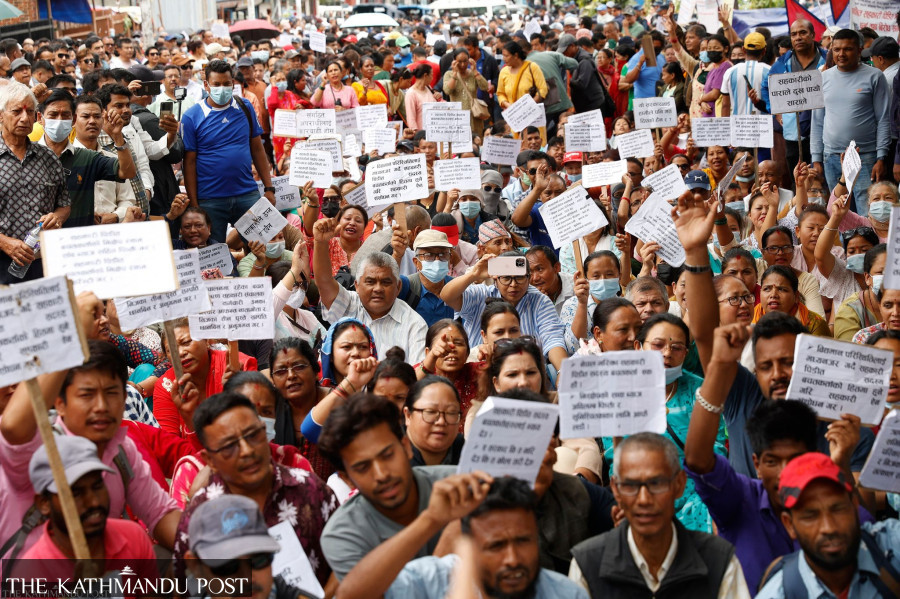Editorial
Question of intent
Pick of officials in the new authority will show if the ruling parties want to solve the cooperative crisis.
After a long struggle of cooperative victims and rigorous nationwide debates, the government has brought a new law through ordinance to establish an authority and regulate the crisis-plagued cooperative sector. Thousands of victims from hundreds of cooperatives have been taking to the streets in the capital city Kathmandu as well as other major towns across the country for the past few years seeking the return of their deposits. Successive governments have signed multiple agreements with the representatives of agitating cooperative victims in this connection. Opposition parties last year obstructed parliamentary proceedings for weeks demanding a serious investigation into the embezzlements of billions of rupees. After a thorough study, the special parliamentary committee came up with a detailed report that recommended actions against several people including former home minister and Rastriya Swatantra Party chair Rabi Lamichhane and former AIG of Nepal Police Chhabilal Joshi.
With the mushrooming of cooperatives starting in early 1990s, the cases of irregularities in them also became rampant. The problem was identified right then. After that, successive governments formed over a dozen committees and panels to study the matter and recommend solutions. A couple of such probe panels were formed even during the Panchayat regime. The latest parliamentary probe panel last year studied their findings, synthesised them and offered recommendations to the government. The government made changes in the laws and decided to form a regulatory authority. Even after the Surya Thapa-led House committee submitted its report, police and government agencies have extensively probed the matter. So, again, this is not a new problem.
As the present KP Sharma Oli-led government commands a comfortable majority in federal parliament, it is certain to get the ordinance endorsed from the House once the winter session commences. With the law in place, the government will form the authority, sooner or later. But then, in the past, Nepali politicians have time and again weakened such bodies by appointing their loyalists. Politicians feel insecure about appointing independent and competent experts who don’t obey their diktat. So the top leaders mostly pick officials obedient to them, thereby weakening the bodies from the start.
Most recently, Nepal was internationally praised for amending laws related to the two transitional justice bodies—the Truth and Reconciliation Commission and the Commission of Inquiry into the Disappearance of Persons. But in a matter of months, the process has been stuck as top leaders stick to their guns to appoint their ‘yes men’ in the commissions. Previously, during the time of the Constituent Assembly, the government formed a committee comprising ‘independent experts’ appointed based on political parties’ recommendations. They were given a historic task of recommending an appropriate state restructuring model. The expert members in the committee, however, quarrelled among themselves and came up with two different reports along the lines of the political parties they were close to.
This time, if the individuals obedient to political parties are appointed in the National Cooperative Regulation Authority, the credibility of this body will also come under question from the get go. A large number of actors from across the political spectrum are involved in irregularities in the cooperative sector. So the selection of officials in the authority will clearly signal whether the ruling partners—the Nepali Congress and the CPN-UML—really want to solve the cooperative crisis. As they decide the officials, top Congress and UML leaders should be mindful that a wrong step right now could lead to an explosion of anger from hundreds of thousands of the victims of cooperatives, and most of this anger will be directed at the major parties who got it wrong.




 10.12°C Kathmandu
10.12°C Kathmandu













